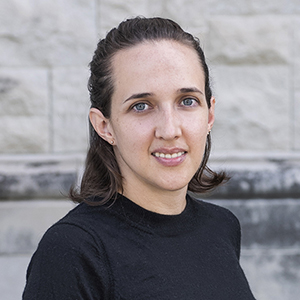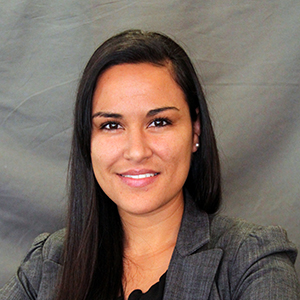Indiana University School of Public Health-Bloomington (SPH-B) Applied Health Science faculty members Ines Gonzalez Casanova, Ph.D. and Karla Galaviz, Ph.D. were recently awarded an R21 National institutes of Health (NIH) Exploratory/Development Research Grant in the amount of $594,375 to study the feasibility of mobile health units for rural Latino populations in Indiana. While the goal of the mobile units is to help close the health equity gap in Type 2 diabetes preventive services, another project aim is to address specific barriers hindering diabetes screening for this specific population—who, according to research, are less likely to have access to this service than any other group.

"Latino individuals, particularly those of Mexican or Central American origin, face a heightened Type 2 diabetes risk due to genetic predisposition, early-life exposure to malnutrition, and dietary behaviors," says Dr. Gonzalez Casanova. "Early detection and intervention are crucial for preventing Type 2 diabetes, underscoring the importance of access to screening for Latino communities, especially those in rural areas."
Dr. Galaviz says the R21 funds will be used to obtain health unit equipment for diabetes prevention, as well as to compensate community partners and potential end-users who will guide unit design and implementation. The team will begin working in southern Indiana—specifically Dubois and Daviess Counties—as both have a growing Latino population and associated Type 2 diabetes concern. Once the initial pop-up unit model is developed to serve these areas, the team will potentially expand to other high-risk areas throughout Indiana.

"Community partners will have a leading role in designing the diabetes unit and its implementation system,” says Dr. Galaviz. “By involving them in the design process, we anticipate that the final unit will better cater to the needs of Latino individuals living in rural Indiana; thereby enhancing our chances of success."
Dr. Gonzalez-Casanova stresses that community involvement will be crucial to the development of the unit services and programming. While diabetes preventive services implementation will take priority, other services envisioned for this unit include screenings for chronic disease risk factors such as high blood pressure, high cholesterol, fatty liver disease, and depression.
“Our research efforts are divided based on complementary expertise,” adds Dr. Gonzalez-Casanova. “Dr. Galaviz specializes in diabetes prevention and implementation science, while my background lies in nutrition with expertise in serving Latino populations. We share a passion for preventing chronic diseases in diverse populations and are enthusiastic about collaborating on this project.”
For more stories about SPH-B students and faculty making a big difference both locally and worldwide, visit go.iu.edu/48bx.


